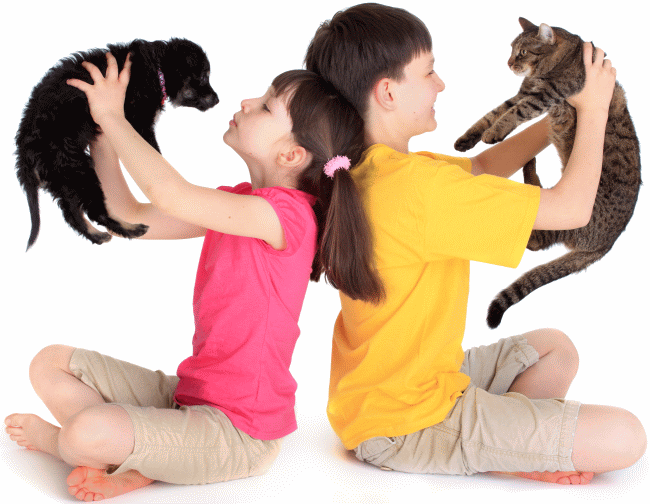 There is a difference between making observations about people, and negatively stereotyping them. Society is forever attempting to understand and label people based on their habits, life choices, preferences and activities. As absurd as it is to pigeon-hole individuals based on some surface-level aspects, it does occur. While there might be studies proving them certain personality types might be drawn to one thing over another (say, dogs VS cats, for instance), it can be very damaging to generalize. For example, an extroverted cat-lover who is a staunch Catholic might be affronted by how incorrect these assumptions are, just as an introverted dog-person in his San Francisco studio apartment might be. Whether or not these observations ring true all the time, our research shows that these stereotypes below are some of the most common beliefs about cat-lovers and dog-lovers.
There is a difference between making observations about people, and negatively stereotyping them. Society is forever attempting to understand and label people based on their habits, life choices, preferences and activities. As absurd as it is to pigeon-hole individuals based on some surface-level aspects, it does occur. While there might be studies proving them certain personality types might be drawn to one thing over another (say, dogs VS cats, for instance), it can be very damaging to generalize. For example, an extroverted cat-lover who is a staunch Catholic might be affronted by how incorrect these assumptions are, just as an introverted dog-person in his San Francisco studio apartment might be. Whether or not these observations ring true all the time, our research shows that these stereotypes below are some of the most common beliefs about cat-lovers and dog-lovers.
Bear in mind, most generalizations tread on thin ice when it comes to whether or not they are considered universally accurate. But take a look through the most common myths about dog-lovers and cat-lovers below, and see if there is any veracity to the stereotypes:
Cat People…
- Are more intelligent.
- Are more likely to stay single or to live alone (and may be relationally disconnected).
- Are more likely to live in cities.
- Are more liberal.
- Are more independent.
- Are quicker to throw off conventional beliefs & religion, etc.
- Are more sensitive.
- Are seeking affection.
Dog People…
- Are more athletic.
- Are more socially outgoing.
- Are more respectful of authority.
- Have happier, “sunny” dispositions.
- Care less about their appearance than cat-lovers.
- Are more family-oriented.
- Are more conservative & conventional.
- Are more likely to live in spacious or rural areas, and love being outdoors.
- Are seeking companionship.
Why Even Pet-Preference Stereotypes Are Detrimental
Like many generalizations, preconceived notions about a person’s personality, value or tendencies can be dangerous. If someone owns a cat or a dog, it can be easy for others to judge a book by its cover and assume the stereotypes (good and bad) apply to them. One cat owner claimed that he felt people make presumptions about his sexual orientation, based on the stereotype of him being more “sensitive” since he preferred to own a cat instead of a dog.
The world is ruthless enough as it is without people having to defend their position, or be tempted to define themselves based on their pet choice. If someone feels intellectually inferior, it would be awful if their canine preference reinforced the concept that their intelligence has less value. Similarly, insecure women who desperately want a relationship, but haven’t been successful might fear that they will end up alone if they own cats. Though this is just a minor example, the material point is that insecurities and negative self-perception can be exacerbated by negative stereotypes.

